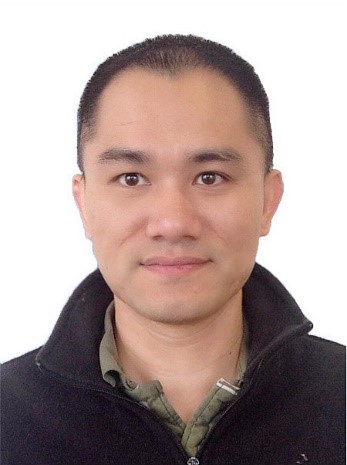
屠奇超 博士
Dr. Qichao Tu
tuqichao@sdu.edu.cn, tuqichao@outlook.com
浙江大学 本硕 (2002-2008)
美国俄克拉荷马大学 博士 (2008-2014)
美国俄克拉荷马大学 博士后 (2014-2015)
美国洛斯阿拉莫斯国家实验室 访问学者 (2010-2011)
浙江大学 讲师,求是青年学者 (2015-2018)
山东大学 教授,齐鲁青年学者 (2018-)
Ph.D., University of Oklahoma (2008-2014)
Postdoctoral Fellow, Institute for Environmental Genomics, University of Oklahoma (2014-2015)
Visiting Scholar, Divition of Biology, Los Alamos National Lab (2010-2011)
Assistant Professor, Qiushi Young Scholar, Zhejiang University (2015-2018)
Professor, Qilu Young Scholar, Shandong University (2018-)
研究方向:
微生物生态学,生物信息学
Research Interests:
Microbial Ecology, Bioinformatics
Selected Publications:
1. Tu et al., NCycDB: a curated integrative database for fast and accurate metagenomic profiling of nitrogen cycling genes. Bioinformatics. (2019), 35(6): 1040-1048.
2. Tu et al., Metagenomic reconstruction of nitrogen cycling pathways in a CO2-enriched grassland ecosystem, Soil Biology and Biochemistry, (2017) 106, pp 99-108, 2017/3.
3. Tu et al., HuMiChip2 for strain level identification and functional profiling of human microbiomes. Appl Microbiol Biotechnol,(2017) 101(1), pp 423-435, 2017/1.
4. Tu et al., Gene content dissimilarity for subclassification of highly similar microbial strains. BMC Genomics. (2016) 17:647.
5. Tu et al., Biogeographic Patterns of Soil Diazotrophic Communities across Six Forests in North America. Molecular Ecology. (2016) 25, 2937–2948.
6. Tu et al., The diversity and co-occurrence patterns of N2-fixing microbial communities in a CO2-enriched grassland soil ecosystem. Microbial Ecology. (2016) 71(3):604-15
7. Tu et al., Fungal communities respond to long-term CO2 elevation by community reassembly. Applied and Environmental Microbiology. (2015) 81(7): 2445-2454.
8. Tu et al., Strain/Species identification in metagenomes using genome-specific markers. Nucleic Acids Research. (2014) 42.8: e67-e67. (Editor's pick by Genomeweb)
9. Tu et al., “GeoChip 4: a functional gene arrays-based high throughput environmental technology for microbial community analysis”. Molecular Ecology Resources. (2014) 14: 914–928.
10. Tu et al., Strain/Species-Specific Probe Design for Microbial Identification Microarrays. Applied and Environmental Microbiology. (2013) 79.16: 5085-5088.
个人简介:
屠奇超,男,山东大学海洋研究院教授,山东大学齐鲁青年学者。
主要从事微生物生态学与生物信息学相关研究,具体包括微生物群落对环境变化的响应机制、微生物群落生态学、以及大数据背景下的微生物生态信息学研究。通过宏基因组及生物信息学分析,系统研究了大气二氧化碳升高对微生物群落结构及功能的影响;开发了GeoChip4、HuMiChip、HuMiChip2等高通量功能基因芯片,用于复杂环境中微生物群落功能基因及物种的快速分析与鉴定;开发了微生物菌株及亚种水平鉴定算法及高准确度氮循环数据库。未来工作将主要着眼于海洋微型生物群落,以宏基因组测序为主要研究手段,研究海洋微型生物之群落结构、功能、多样性、生物地理学分布、生态学机制、及其在全球生物地球化学循环中所起的作用。
Qichao Tu mainly backgrounded in bioinformatics and microbial ecology. His previous work focused on the responses of microbial communities to environmental changes, the potential ecology theories that microbial communities follow, and development of bioinformatics tool and algorithms for microbial ecological studies. Using cutting edge technologies including metagenomics and bioinformatics, we systematically analyzed the responses of microbial communities to global climate change such as increasing atmospheric CO2. We also developed several high throughput functional gene arrays for metagenomic profiling and strain/species level identification of microbial communities, including GeoChip and HuMiChip. We also developed several algorithms and databases for strain/species identification and metagenomic profiling in post-genomic and metagenomic era. In the future, efforts will be made to disentangle the community structure, function, diversity, biogeography, community assembly mechanisms, and the roles in global biogeochemical cycling of marine microbial communities.